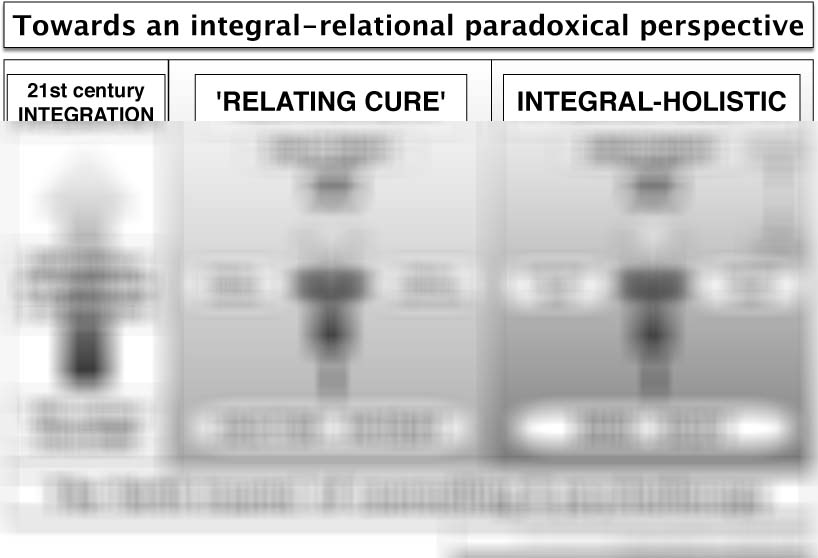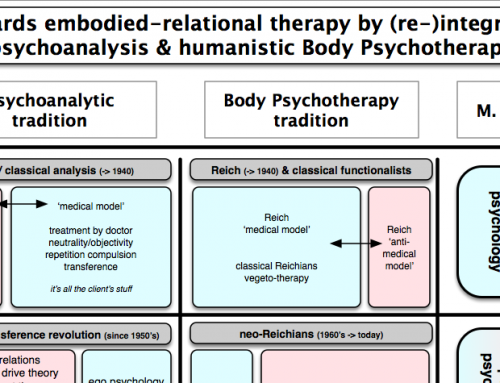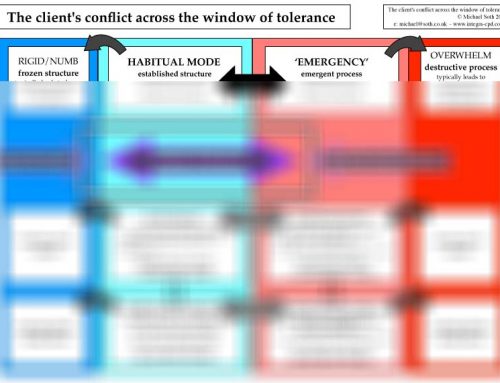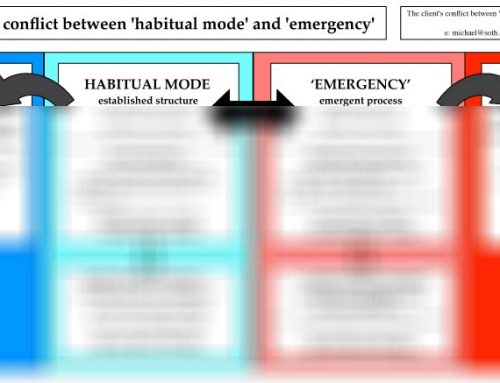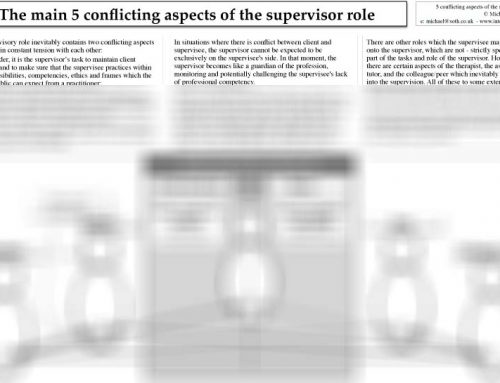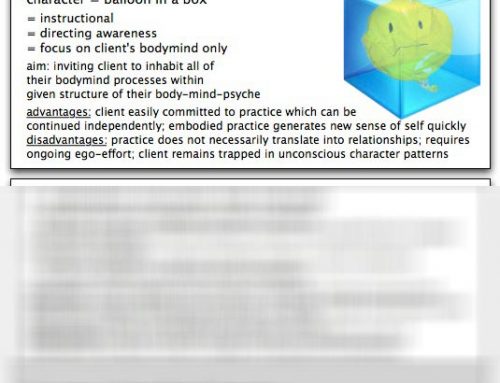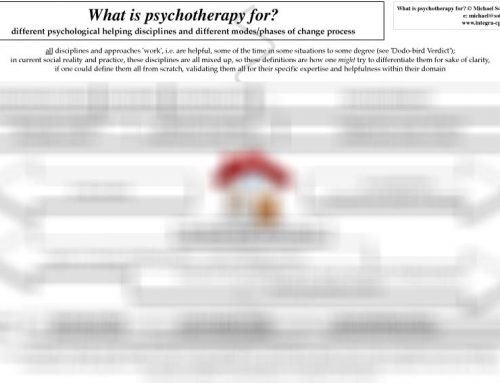Project Description
This dense and abstract handout, consisting of several pages, summarises the evolution of the field of psychotherapy since its origins in Freud's zeitgeist of the late 19th century. I am picking out two main dualisms: the doctor-patient relationship and the mind-over-body relationship. The history of psychotherapy over the last 100 years could be written in terms of how the field has struggled with and against these dualisms. On both fronts, we can see that the process moves from Freud taking these dualisms for granted, towards an increasing challenge, critique and deconstruction of dualistic assumptions, eventually ending up in a just as dogmatic polarised opposite position. We could say that the process moves from one extreme to the other (in Hegel's terms from thesis to anti-thesis), leaving the late 20th century therapeutic profession profoundly torn and confused between the polarities. The question is: what would help us take the step into the synthesis, the third position? I am suggesting that on both fronts a paradoxical third position would mark the completion of a paradigm shift - a position which in terms of the doctor-patient relationship can embrace both 'medical model' as well as anti-'medical model' perspectives; and which in terms of the mind-over-body relationship can embrace both split and disembodiment as well as wholeness and embodiment.
To gain access to the full resource, please log-in if you are a member already (and then re-fresh this page after log-in), or to become a member of the site register here (it's free).

